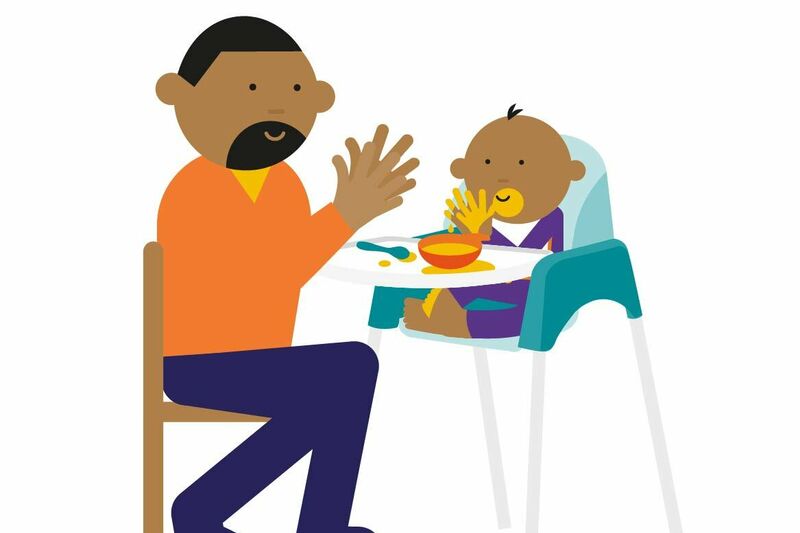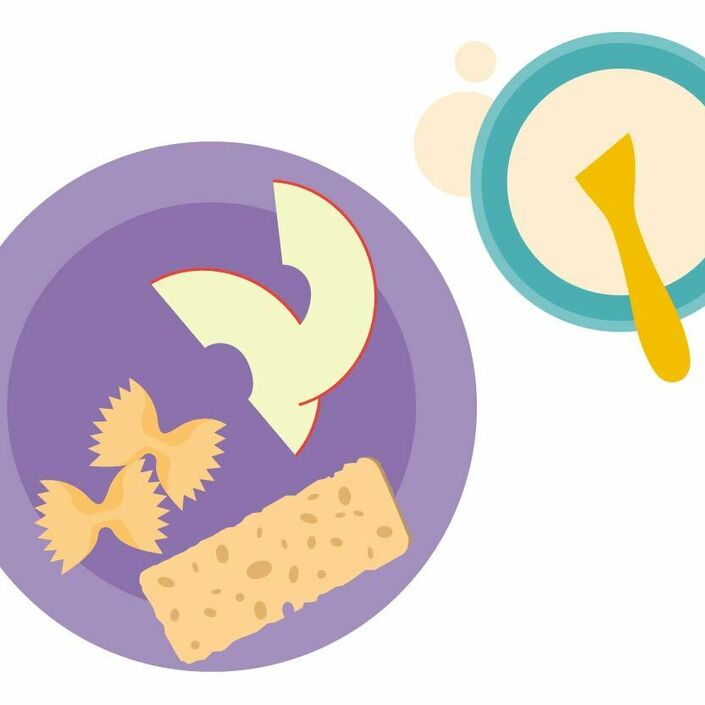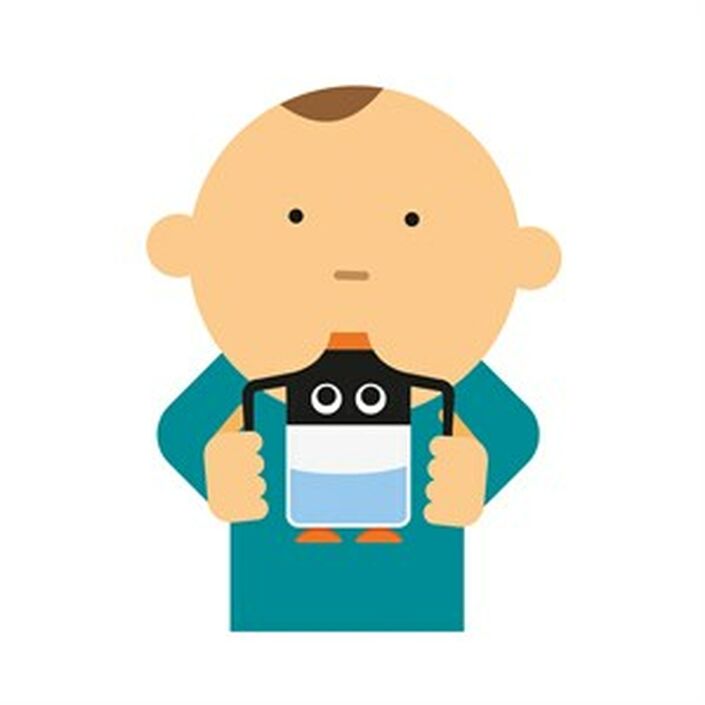Here are some other useful tips as you progress weaning:
- Babies often like strong tastes so, it’s fine to add garlic, onion, herbs, or spices to your baby’s food if you use them in your own cooking.
- If you need some liquid to soften mashed food, use your baby’s usual milk. If you use stock or gravy, it should be salt-free.
- Avoid adding salt, sugar, or honey to your baby’s food.
- If you enjoy food with chilli, introduce it gradually for your baby’s’ food.
And some other useful guidance on foods and meals:
Follow these links for many different meal ideas and recipes at each stage of weaning:
Follow these links for more information on safe preparation of your baby’s food:
If you are concerned about your baby’s bowel habits during weaning, such as constipation or loose stools, contact your GP or Health Visitor.
Preterm babies can appear to have digestive problems, pulling faces and being quite noisy around mealtimes.
As long as their poo is soft there is not usually any cause for concern, and they will gradually get used to the sensations in their stomach.
If you are concerned your baby might have acid reflux, visit our page about reflux for more information.
Refusing food is very common in young children – it’s all part of
their learning. If your baby refuses food, instead of offering another
mouthful, stop and wait to see if they give you cues that they want to
try again.
Don’t force them to take more food. Your baby will show you
signs that they have had enough.
Start with small amounts of food to begin with, especially if you are
trying a new food - and don't expect it all to be eaten. If your baby
doesn’t seem to like a particular food at first, it is likely to be
because it is not familiar to them.
If you are spoon feeding, offer the spoon gently. Only put it into
your baby’s mouth if they open their mouth to accept the food.
Babies pick up on how others are feeling, so try not to show any
anxiety or frustration at mealtimes as it might put your baby off
eating.
Gradually increase the amount you offer in response to how much your
baby is eating. Once you think they have had enough, take away any
leftovers and don’t comment on what they haven’t eaten.
Even if you think they haven't had enough to eat, don't worry. They
will usually eat more when offered food later that day or the day after.
None of us eats the same amount of food at every mealtime.
How do I know if my baby has had enough to eat?
Here are some examples of cues that your baby has finished eating:
- Turning their head away.
- Pushing the spoon away.
- Spitting food out.
- Losing concentration.
- Becoming restless, and easily distracted by other things.
- Try not to wait until your baby begins to get bored, upset or cry before offering a different food or ending the meal.
Most babies will eat what they want in the first 20 minutes or so of a
meal. After that they may carry on exploring food and eating a little,
but it is fine to stop the meal when they begin to lose interest.
Your baby will let you know when they have had enough food and are
ready to end a mealtime. Over time, you will learn the cues that your
baby gives to tell you they are finished with eating before they get
bored or distressed.
Reasons your baby may refuse food
All babies will refuse food at some stage. Your baby may do this because:
- The food is too hot or too cold
- They are tired
- They are already full
- They are not yet used to the food’s taste or texture
- They are feeling unwell
Exposure to new foods increases their acceptance
For all babies, weaning is a time to learn about tastes and textures which are very different from the milk they are used to.
Sometimes a new food is greeted with a grimace or a gag - even if it isn’t lumpy - or pushed out of the baby’s mouth.
However, it has been shown that offering the same food several times
over a few weeks can increase a baby’s familiarity with the food and
help them learn to enjoy it.
We all tend to like and accept foods we are more familiar with, and this is the same for babies.



